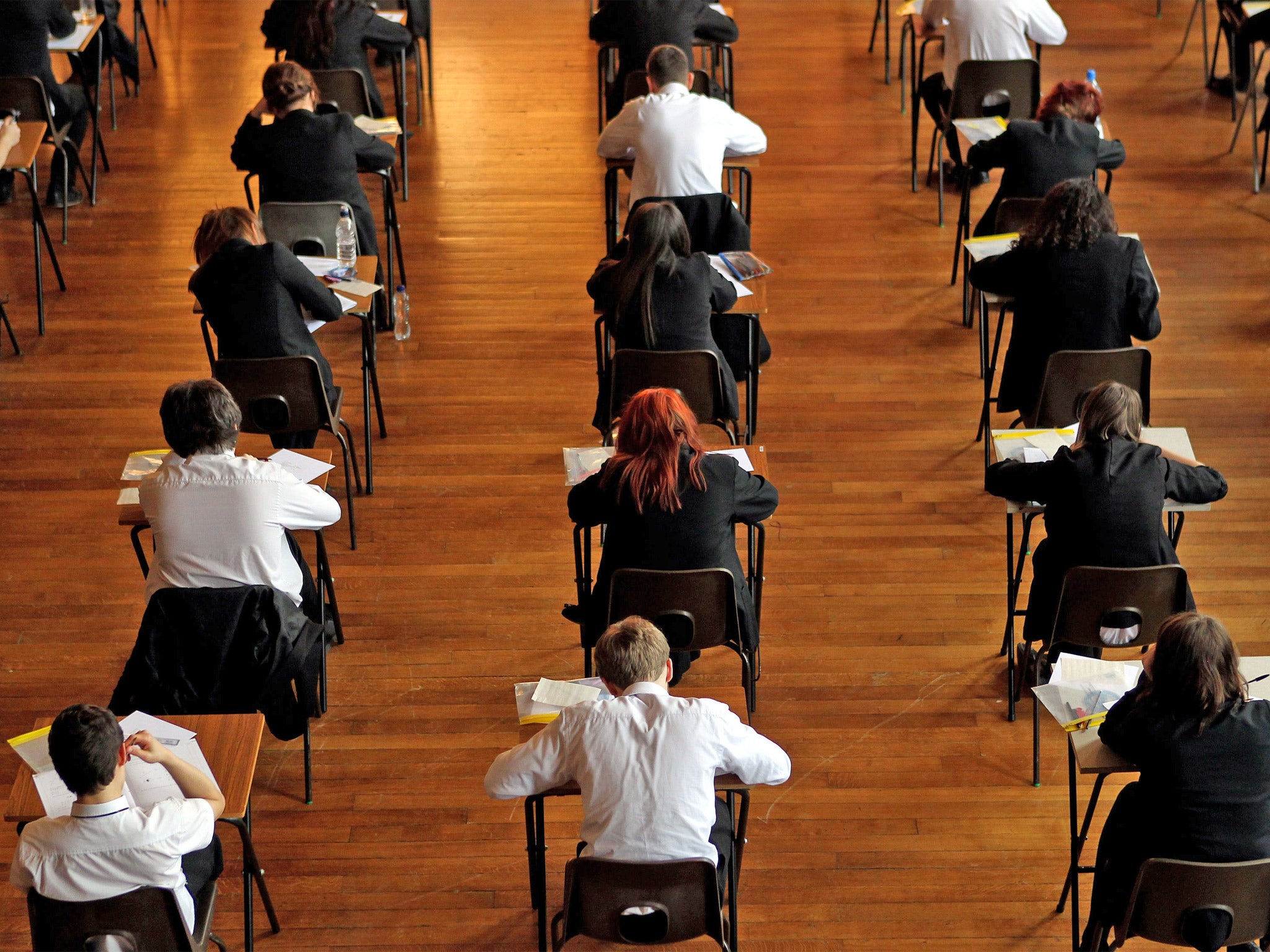Overhauled GCSE system features new 'super grade' for 'really exceptional students'

Your support helps us to tell the story
From reproductive rights to climate change to Big Tech, The Independent is on the ground when the story is developing. Whether it's investigating the financials of Elon Musk's pro-Trump PAC or producing our latest documentary, 'The A Word', which shines a light on the American women fighting for reproductive rights, we know how important it is to parse out the facts from the messaging.
At such a critical moment in US history, we need reporters on the ground. Your donation allows us to keep sending journalists to speak to both sides of the story.
The Independent is trusted by Americans across the entire political spectrum. And unlike many other quality news outlets, we choose not to lock Americans out of our reporting and analysis with paywalls. We believe quality journalism should be available to everyone, paid for by those who can afford it.
Your support makes all the difference.Plans for a new super grade for “really exceptional” students at GCSE are unveiled by the exams regulator Ofqual today.
Only half the number of pupils who currently obtain A* grades in the exam are expected to qualify for the new grade nine, which is to be introduced as part of a shake-up of the exam from 2017. At present, 6.8 per cent are awarded A* grades.
As a result of the Government’s exam reforms, GCSEs will no longer be graded from A* to G, but from nine to one, with nine being the top mark.
In a consultation document published today, Glenys Stacey, Ofqual's chief executive, believes that the new structure will give scope for more differentiation at the top - with a seven, eight or nine grade being equivalent to A* or A grade in the current system.
“With nine grades, you’ve got an extra grade and you’ve got more scope for differentiation,” she said. “We would expect half of the percentage of students who currently get an A* grade would be awarded a nine.”
In addition, more students will be awarded the bottom grade under the new system, with a grade one pass ranking as the equivalent of an F or a G in the present system.
“We know these lower grades have limited currency in the jobs market, but we also know they can recognise real progress for some students,” Ms Stacey added.
For the first time ever, the new exam will be tied to an international benchmark, with a grade five pass chosen as the mark necessary to be on a par with those achieving a top-grade pass in the internationally recognised PISA tests run by the Organisation for Economic Co-operation and Development. This grade, said Mrs Stacey, would be half or two thirds a grade above the current C grade. A grade four pass would be the equivalent of a C grade in today’s system.
Ms Stacey conceded this would pose an interesting dilemma for the Government, as it would have to wrestle with deciding whether grade five or four would be the level chosen to rank schools in exam league tables. The likelihood is that Education Secretary Michael Gove would chose grade five as he is anxious schools should aim for the highest possible target.
In addition, Ofqual is proposing the introduction of an extra test in maths and English - a national reference test - to be taken by students just before their GCSEs.
The idea is to give exam boards an idea of the ability of an entire year group, which could help them determine the grade boundaries for GCSEs that year.
In addition, it will help ministers determine whether there has been an increase or decrease in standards compared with previous years, as pupils will sit tests of the same calibre every year.
These new-style GCSEs - with more emphasis on end-of-course tests and a ban on coursework in some subjects - will be taught for the first time from September 2015 and first awarded in English language, English literature and maths in 2017. Other subjects will follow a year later.
Wales and Northern Ireland have expressed reservations over the planned GCSE reforms and are set to stick with the existing GCSE system. Scotland’s exams system is entirely different.
A spokesperson for the Department for Education said: “Rising results year after year masked the fact that standards were stagnating. We hope these reforms will raise standards and restore trust in the exam system for families, for employers and for the pupils themselves.”
The new grades explained:
- Grade 9: top A* performers; about half of the 6.8 per cent who got A*s this year are likely to get it
- Grade 8: the rest of those who obtained A* but did not qualify for a 9
- Grade 7: equivalent to an A grade pass
- Grade 6: covering those from two thirds above current C grade to top of existing B grade
- Grade 5: international benchmark, showing performance equals that of students getting top-grade passes in high performing countries in international league tables. Pitched at half or two thirds of a grade above the current C pass
- Grade 4: equivalent to a C grade pass
- Grade 3: equivalent to a D grade pass
- Grade 2: equivalent to an E grade pass
- Grade 1: equivalent to grade F and G passes
Join our commenting forum
Join thought-provoking conversations, follow other Independent readers and see their replies
Comments